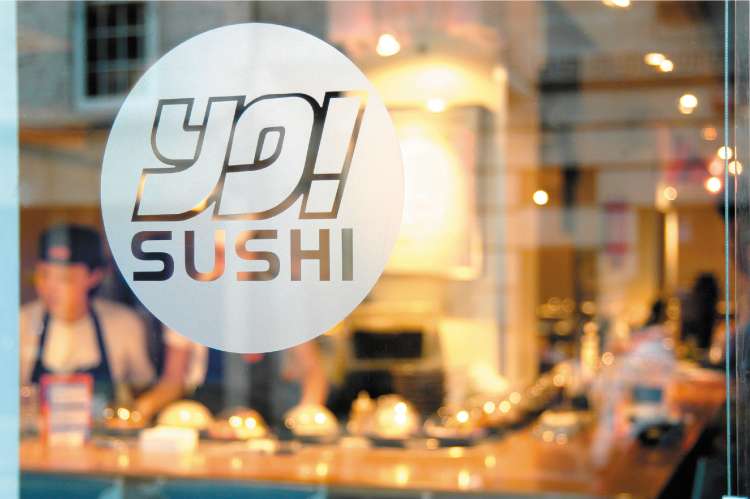So had my sushi spent four hours on the conveyor belt?

Your support helps us to tell the story
From reproductive rights to climate change to Big Tech, The Independent is on the ground when the story is developing. Whether it's investigating the financials of Elon Musk's pro-Trump PAC or producing our latest documentary, 'The A Word', which shines a light on the American women fighting for reproductive rights, we know how important it is to parse out the facts from the messaging.
At such a critical moment in US history, we need reporters on the ground. Your donation allows us to keep sending journalists to speak to both sides of the story.
The Independent is trusted by Americans across the entire political spectrum. And unlike many other quality news outlets, we choose not to lock Americans out of our reporting and analysis with paywalls. We believe quality journalism should be available to everyone, paid for by those who can afford it.
Your support makes all the difference.Sushi is good for you, and eating it makes you hip and healthy: the subliminal message behind the rash of new Japanese food joints all over Britain is hard to miss – and it goes a long way to explaining how, in the space of just a few years, cutely presented raw fish has become one of the country's favourite fast-food snacks.
Nowhere is this seductive logic more on display than in any branch of Yo! Sushi, the restaurant chain which was set up just over a decade ago with just £150,000 by a former Rod Stewart roadie, Simon Woodroffe, and has since become a ubiquitous feature of London's high streets and shopping centres.
The chain's hi-tech, almost clinical image, with its constantly rolling conveyor belt and flashing red buttons used to beckon the waitress, is a large part of its appeal. Chefs dressed in an obligatory array of health-and-safety equipment – hair nets, plastic gloves and disposable white aprons – look more like lab technicians than gastronomes.
Yesterday, I took a personal snapshot of the chain in a visit to city centre branch in London. The conveyor belt was turning and customers sat around as the multicoloured dishes passed before their eyes. The staff, well-clad as ever, were hard at work on stainless steel worktops, and even the traditional bamboo sushi rollers were covered in plastic. Like every Yo! joint it was all sharp edges and bright lights: cool, chic and sanitised.
Although my slot on the conveyor belt initially looked clean it didn't take long to start finding faults. The floor below, painted in easy-to-clean industrial grey paint, was stained with soy sauce and had bits of what could only be described as fluff. Britons' failure to get to grips with the art of chopsticks seemed to be challenging the cleaning regime.
Also rather disturbing were the still and fizzy water taps. Each place contains two taps for water and mine weren't spotless.
The question of the wasabi pot is also worth considering. Now, it may be that no bacteria could possibly withstand living in a pot of the fiery bright green Japanese condiment that gives a welcome pep to an otherwise mild cuisine but yesterday the pots looked distinctly unappealing. Unlike more expensive restaurants, which often dollop a scoop of fresh wasabi on to each dish, Yo! uses plastic pots accessible to all the customers and then refills them when they get empty. Mine had clearly either been left open or not changed in a while as there was a ring of drying wasabi around the outside and a few specs of something which was certainly not green inside.
The other problem with Yo! Sushi is its kitschiest component – its hi-tech conveyor belt. Where some sushi restaurants have fallen down with health inspectors is that the dishes can spend a few hours trundling around before they are replaced. That makes getting a fresh-tasting dish something of a lottery: while the California crab roll felt like it had just come out of the fridge, my shrimp sushi was dry and tepid.
Yo! Sushi was the only sushi chain in our survey. The company says that it has instituted a push on food hygiene, training its 100 employees above the statutory level. It is challenging health inspectors over the handling of sushi rice – its scientists say it can be safely kept for four hours rather than the usual two for hot food. The chain is the first to introduce the Food Standards Agency's traffic light labelling system for nutrition. Last year, Yo! Sushi reported a 42 per cent rise in post-tax profit to £4.3m.
Join our commenting forum
Join thought-provoking conversations, follow other Independent readers and see their replies
Comments